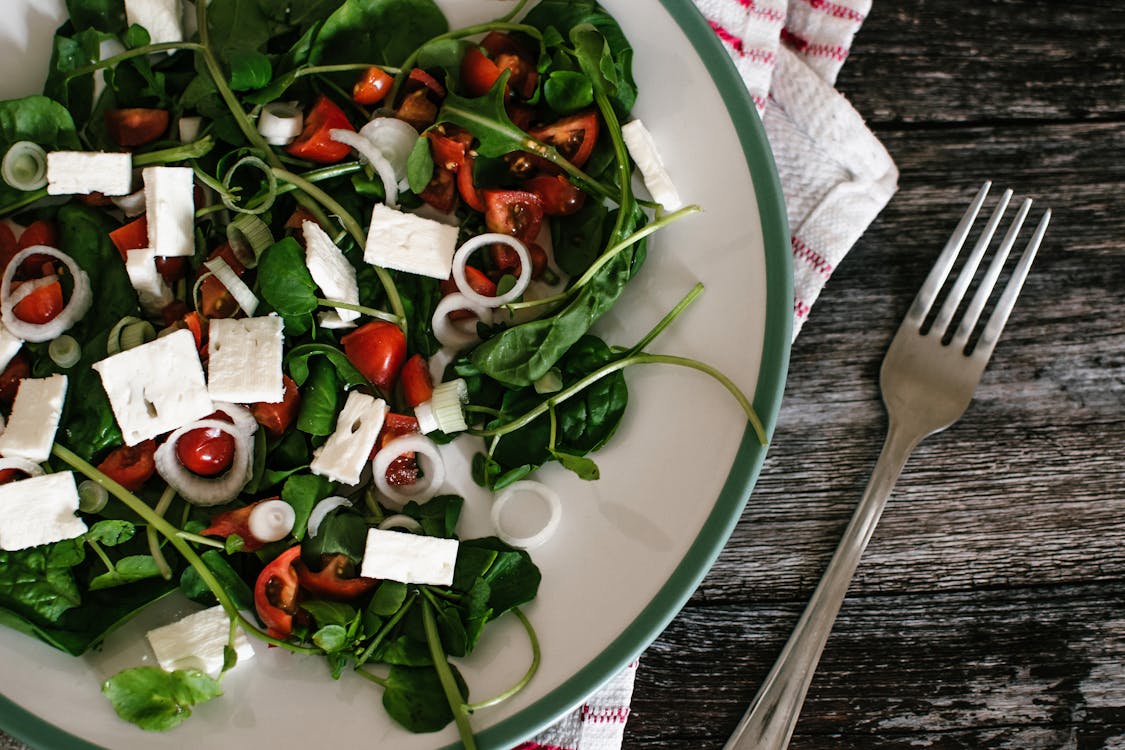Ayurvedic Weight Loss: A Complete Guide to Reducing Belly Fat Naturally 🌿
In the pursuit of a healthy weight, many find themselves trapped in a cycle of restrictive crash diets and exhausting workout routines that are difficult to sustain. Ayurveda offers a refreshing and profoundly effective alternative. Instead of focusing on calorie counting, Ayurvedic weight loss is a holistic approach centered on restoring your body's innate metabolic balance, improving digestion, and addressing the root causes of weight gain. This is not a quick fix, but a sustainable path to achieving and maintaining your ideal weight, particularly when it comes to stubborn belly fat.
This comprehensive guide will delve into the core principles of Ayurvedic weight management (*Sthaulya Chikitsa*). We will explore why weight gain happens from an Ayurvedic perspective, provide detailed diet and lifestyle strategies to pacify the doshas, and introduce powerful herbs and home remedies that can naturally and safely support your weight loss journey. By following these time-tested tips, you can not only shed excess weight but also cultivate a deeper sense of well-being and harmony within your body.

- The Ayurvedic View of Weight Gain: Kapha, Agni, and Ama
- The Kapha-Pacifying Diet for Weight Loss
- Top 7 Ayurvedic Herbs & Spices to Burn Fat
- Lifestyle (Vihara): Daily Routines to Boost Metabolism
- Yoga Asanas and Exercise for Reducing Belly Fat
- Advanced Ayurvedic Therapies for Weight Loss
- Conclusion: A Holistic Path to a Balanced Weight
- Frequently Asked Questions (FAQs)
The Ayurvedic View of Weight Gain: Kapha, Agni, and Ama
In Ayurveda, excess weight (*Sthaulya* or *Medo Roga*) is primarily seen as an imbalance of the **Kapha dosha**. Kapha, composed of the Earth and Water elements, is inherently heavy, slow, cool, and dense. When it becomes aggravated through an improper diet and a sedentary lifestyle, these qualities manifest in the body as weight gain, water retention, and a feeling of sluggishness.
However, Kapha is only part of the story. The root of the problem almost always lies with a weakened **Agni** (digestive fire). When your metabolic fire is dull (*Manda Agni*), your body cannot efficiently digest food and metabolize nutrients. This leads to the creation of **Ama**—a sticky, toxic residue of undigested food. This Ama clogs the body's channels (*Srotas*), disrupts tissue metabolism, and eventually settles in the fatty tissue (*Meda Dhatu*), leading to the accumulation of stubborn fat, especially around the abdomen. Therefore, the Ayurvedic approach to weight loss is a three-pronged strategy: **pacify Kapha dosha, kindle Agni, and eliminate Ama.**
Your unique constitution, or **Prakriti**, also plays a significant role. While Kapha types are most prone to weight gain, Pitta types may gain weight due to excess heat leading to a voracious appetite, and Vata types can gain weight from irregular habits and using food to soothe anxiety.
The Kapha-Pacifying Diet for Weight Loss
Diet is the most powerful tool for balancing Kapha and supporting weight loss. The goal is to choose foods that are warm, light, dry, and stimulating, with a focus on the **Pungent, Bitter, and Astringent** tastes.
Foods to Favor
- Vegetables: Be generous with leafy greens (spinach, kale), cruciferous vegetables (broccoli, cauliflower), and pungent vegetables (onions, radishes).
- Fruits: Opt for lighter, more astringent fruits like apples, pears, berries, and pomegranates.
- Grains: Choose light and dry grains like barley, millet, quinoa, and corn.
- Legumes: Almost all beans and lentils are excellent, especially mung beans, chickpeas, and red lentils.
- Spices: This is your secret weapon! Use warming and stimulating spices like ginger, black pepper, long pepper (Trikatu), turmeric, cinnamon, and cayenne to boost your Agni.
- Beverages: Sip on warm water or herbal teas (like ginger or cinnamon tea) throughout the day.
Foods to Reduce or Avoid
- Sweet Foods: Drastically reduce refined sugar, desserts, and overly sweet fruits like bananas and mangoes.
- Sour Foods: Minimize sour foods like pickles and excessive citrus.
- Salty Foods: Reduce table salt, which can cause water retention.
- Heavy & Oily Foods: Avoid fried foods, heavy meats, and most dairy products (especially cheese, yogurt, and ice cream).
- Cold Foods & Drinks: Iced water and cold foods dampen Agni and increase Kapha.

Top 7 Ayurvedic Herbs & Spices to Burn Fat
These powerful herbs and spices can be integrated into your diet to kindle Agni, detoxify Ama, and support fat metabolism. Many can be found in our **Herb Database**.
- Triphala: This classic formula of three fruits (Amla, Bibhitaki, Haritaki) is a gentle but effective detoxifier. It cleanses the colon, improves digestion, and helps regulate metabolism. Taking one teaspoon of Triphala powder with warm water before bed is a cornerstone of Ayurvedic weight management.
- Guggulu (Commiphora mukul): Guggulu is renowned for its *lekhaniya* (scraping) action. It is traditionally used to scrape away excess fat and toxins from the tissues, lower cholesterol, and kindle Agni.
- Trikatu: This warming combination of three pungents (Dry Ginger, Black Pepper, Long Pepper) is a powerful metabolic booster. It ignites Agni, burns Ama, and enhances the bioavailability of other nutrients and herbs.
- Ginger (Shunthi): Fresh or dry ginger is a universal medicine for digestion. It stimulates Agni, reduces nausea, and helps to clear congestion and heaviness associated with Kapha.
- Cinnamon (Twak): This warming spice helps to manage blood sugar levels, reduce cravings for sweets, and boost metabolism.
- Punarnava (Boerhavia diffusa): An excellent diuretic, Punarnava is highly effective in reducing water retention and bloating, which are common issues in Kapha-related weight gain.
- Garcinia Cambogia (Vrikshamla): This sour fruit is popular in modern weight loss supplements. In Ayurveda, it is used to suppress appetite, improve metabolism, and inhibit the body's ability to store fat.
Lifestyle (Vihara): Daily Routines to Boost Metabolism
Your daily habits are just as important as your diet. A Kapha-pacifying lifestyle is active, stimulating, and consistent.
Embrace an Active Dinacharya (Daily Routine)
- Wake Early: Rise before 6 AM, during the Vata time of day, to avoid the sluggishness of the morning Kapha period.
- Morning Cleansing: Start your day with a glass of warm lemon and honey water to stimulate digestion and cleanse the system.
- Garshana (Dry Brushing): Before your shower, vigorously massage your body with raw silk gloves. This stimulates lymphatic drainage, improves circulation, and combats the heaviness of Kapha.
- Avoid Daytime Naps: Sleeping during the day, especially after meals, increases Kapha and slows metabolism.
- Eat a Light Dinner Early: Finish your last meal by 7 PM to allow for complete digestion before sleep.
Yoga Asanas and Exercise for Reducing Belly Fat
Exercise is non-negotiable for balancing Kapha and losing weight. The goal is to create heat, stimulate circulation, and challenge your endurance.
- Surya Namaskar (Sun Salutation): Performing 6-12 rounds of Sun Salutations each morning is a fantastic full-body workout that builds heat and improves flexibility.
- Invigorating Asanas: Focus on dynamic and heating poses like Warrior poses (Virabhadrasana), Bow Pose (Dhanurasana), Cobra Pose (Bhujangasana), and spinal twists (Ardha Matsyendrasana).
- Pranayama: Practice heating breathwork like *Bhastrika* (Bellows Breath) and *Kapalabhati* (Skull Shining Breath) to increase metabolic rate and clear congestion.
- Cardiovascular Exercise: Incorporate at least 30 minutes of brisk walking, jogging, cycling, or dancing into your daily routine.

Advanced Ayurvedic Therapies for Weight Loss
For more stubborn weight issues, Ayurveda offers powerful in-clinic therapies that should be performed under the guidance of a qualified practitioner. **Udvartana** is a key therapy where the entire body is vigorously massaged with dry, warming herbal powders. This exfoliates the skin, breaks down subcutaneous fat, improves circulation, and leaves the body feeling light and energized.
Conclusion: A Holistic Path to a Balanced Weight
Ayurvedic weight loss is not about deprivation; it's about re-establishing harmony. By understanding the roles of Kapha, Agni, and Ama, you can make intelligent choices that support your body's natural ability to maintain a healthy weight. The journey begins with small, consistent steps: sip warm water, add some ginger to your meal, go for a brisk walk. By combining a Kapha-pacifying diet with an active lifestyle and the support of powerful Ayurvedic herbs, you can safely and effectively reduce excess weight, particularly belly fat, and cultivate a life of lasting energy and vitality.
Frequently Asked Questions (FAQs)
Ayurvedic weight loss is gradual and sustainable, not a crash diet. A healthy and realistic goal is to lose 1-2 kg per month. The focus is on creating lasting lifestyle changes that support a healthy metabolism for life.
In small amounts (e.g., one teaspoon per meal), ghee can actually support weight loss by kindling Agni and helping to pull fat-soluble toxins from the tissues. However, excessive consumption can increase Kapha and lead to weight gain.
No, but Ayurveda recommends favoring lighter, more easily digestible proteins. If you eat meat, it's best to choose white meat like chicken or fish, prepared in a soup or stew, and avoid heavy red meats.
Dinner. Eating a light, warm, and early dinner (before 7 PM) is one of the most impactful changes you can make. This allows your digestive system to rest and your body to focus on detoxification and fat metabolism overnight.

No comments:
Post a Comment